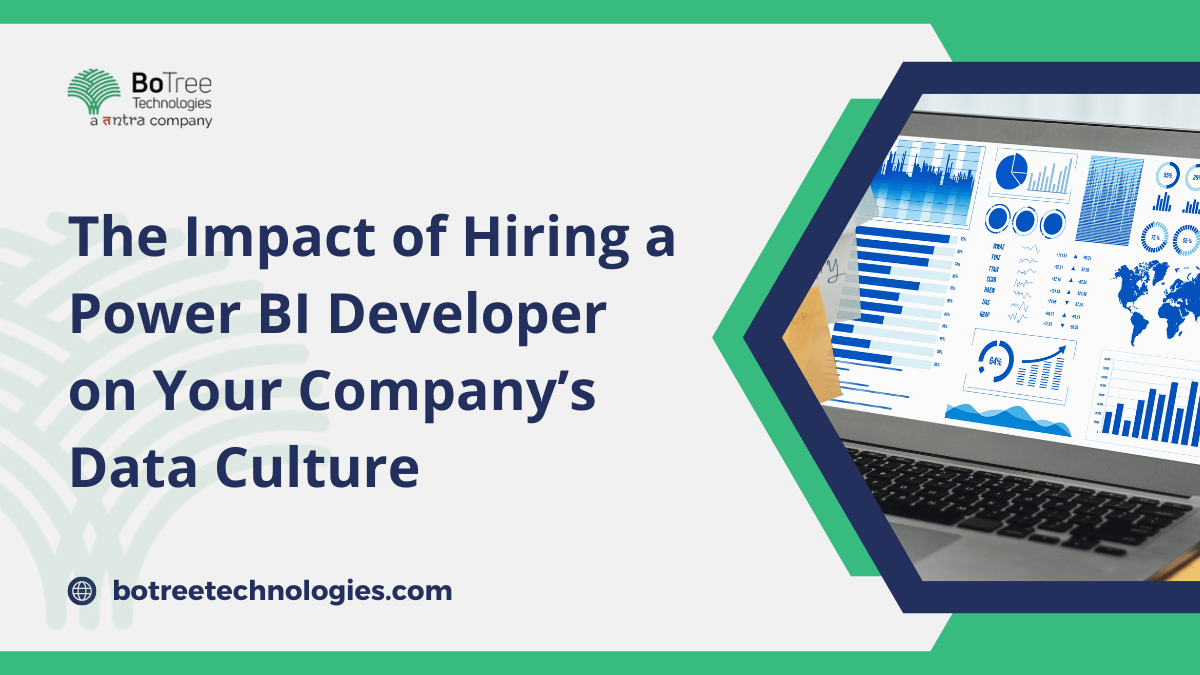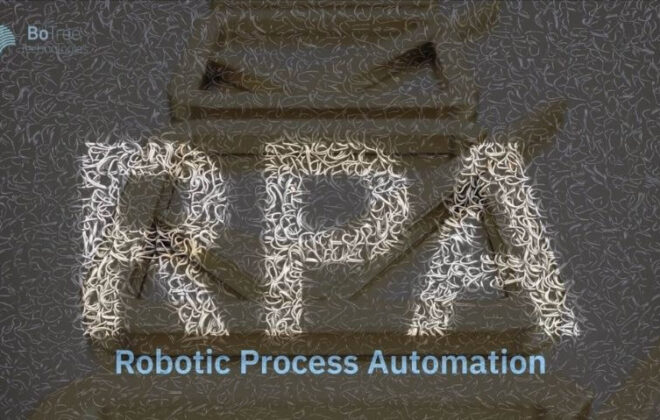
The Impact of Hiring a Power BI Developer on Your Company’s Data Culture
Businesses are continuously looking for ways to gain control of their information to gain experiences, make informed choices, and remain competitive. Power BI, a driving commerce analytics tool by Microsoft, has ended up a go-to arrangement for organizations looking to change raw information into noteworthy intelligence. However, the genuine potential of Power BI can only be opened when it’s in the hands of gifted experts. Hiring a Power BI developer can have a noteworthy effect on your company’s data culture, forming how data is utilized, translated, and valued over the organization.
The Role of a Power BI Developer in Shaping Data Culture
Power BI experts bring specialized capacities that can change how your organization interacts with data. To completely use these capabilities, it’s essential to hire Power BI developers who can essentially affect your company’s information culture. Here are a few key ways in which a Power BI developer can make a difference.
1. Democratizing Data Access
One of the primary roles of a Power BI engineer is to make and maintain dashboards and reports that provide experiences in different aspects of the business. By doing so, they make information more available to employees over the organization, in any case of their specialized expertise.
Traditionally, information investigation and detailing were confined to particular offices, such as IT or finance. However, with the help of a Power BI developer, information can be democratized, permitting workers in promoting, sales, operations, and other offices to access the data they require to make informed decisions.
This democratization of information cultivates a sense of proprietorship and obligation among representatives. When individuals have basic access to vital data, they are more likely to take responsibility for their activities and make choices that adjust to the company’s objectives.
2. Enhancing Data Literacy
Data education is the capacity to examine, understand, and work with information. In a data-driven organization, information education is a vital expertise for representatives at all levels. A Power BI developer plays a critical part in upgrading information proficiency inside the company.
By making user-friendly reports and dashboards, a Power BI engineer ensures that information is shown in a way that is basic to understand. They, moreover, provide planning and support to agents to interpret the data accurately and utilize it to make informed decisions.
As information literacy progresses, employees become more certain in utilizing information to support their work. This increased certainty leads to more data-driven decision-making, assisting in strengthening the company’s information culture.
3. Driving Collaboration Across Departments
Effective data-driven decision-making requires collaboration among departments. A Power BI developer can energize this collaboration by making dashboards and reports that deliver a holistic view of the business. These reports can be shared over departments, permitting groups to work together more effectively.
For illustration, a deals dashboard made by a Power BI designer might be utilized by both the deals and promoting groups to track the performance of distinctive campaigns. By giving a common source of truth, the Power BI designer helps break down silos and energizes cross-functional collaboration.
This collaborative approach not only progresses decision-making but also cultivates a sense of unity and shared reason inside the organization. When teams work together towards common objectives, the general information culture becomes more grounded and more cohesive.
4. Enabling Real-Time Decision-Making
In today’s fast-paced exchange environment, the capacity to make real-time choices is a competitive advantage. With Power BI plans, you can set up real-time dashboards that provide up-to-date data on key performance indicators (KPIs). Real-time data allows choice creators to respond rapidly to changes in the trade environment.
For example, if deals of a particular thing suddenly drop, a real-time dashboard can caution deals or advancement groups so they can take immediate action to resolve the issue.
The capacity to make convenient choices based on real-time data is a hallmark of a strong information culture. It appears that the organization values information as a key resource and is committed to using it to drive business success.
5. Promoting Data-Driven Innovation
Innovation is often driven by information. When employees have access to data and the tools to analyze it, they are more likely to come up with inventive arrangements for commerce challenges. A Power BI designer can make custom reports and dashboards that highlight openings for progression within the organization.
For example, a Power BI engineer might make a dashboard that tracks client feedback and recognizes trends in client preferences. This information can be utilized by the thing improvement group to make new things or improve existing ones.
By promoting data-driven development, a Power BI engineer helps the organization remain ahead of the competition. This focus on innovation moreover fortifies the importance of information in the company’s culture.
6. Ensuring Information Integrity and Security
Data integrity and security are critical components of a solid information culture. Workers are required to believe the information they are utilizing and know that it is accurate and secure. A Power BI engineer plays a key role in guaranteeing information integrity and security within the organization.
They are capable of interfacing the stage with various information sources, guaranteeing that the information is accurate and up-to-date. They also actualize security measures to secure sensitive information, such as financial information or customer records.
By maintaining information integrity and security, a Power BI engineer helps build trust in the information among employees. This trust is principal for cultivating a data-driven culture, as workers are more likely to depend on data when they accept it is accurate and secure.
Challenges in Building a Data Culture with Power BI
Some common challenges include:
- Resistance to Change: Employees may be safe to accept new tools and forms, especially if they are accustomed to making choices based on intuition rather than data.
- Information Silos: Indeed with the best tools in place, data silos can still exist if departments are not willing to share information with each other.
- Skill Gaps: Not all employees may have the necessary abilities to work with information viably. This can be addressed through preparation and support from the Power BI developer.
- Over Reliance on Data: While data is fundamental, it’s basic to strike an adjustment between data-driven decision-making and human judgment. Over Reliance on data can lead to investigation paralysis, where choices are postponed due to excessive information analysis.
Overcoming These Challenges
To overcome these challenges and build a strong data culture, it’s essential to:
- Provide Training and Support: Invest in preparing programs to improve data literacy and help representatives feel comfortable utilizing Power BI and other data tools.
- Encourage Collaboration: Promote cross-functional collaboration and guarantee that data is shared freely over departments.
- Lead by Example: Senior pioneers should lead by case, making data-driven choices and encouraging others to do the same.
- Balance Data and Judgment: Empower workers to utilize data as a tool to illuminate their decisions, but in addition believe their judgment and encounter.
FAQs
Q1: What specific skills should a Power BI developer have?
A Power BI designer should have strong abilities in data investigation, information modeling, and visualization. Capability in DAX (Data Analysis Expressions) and M language, as well as experience with SQL and database administration, is too fundamental. Additionally, a good Power BI designer should understand business forms to make relevant and actionable reports.
Q2: How can a Power BI designer improve our company’s decision-making process?
A Power BI build can make dashboards and reports that give real-time experiences into distinctive viewpoints of the business. This enables decision-makers to base their choices on exact, up-to-date information, leading to more educated and successful decision-making.
Q3: Can hiring a Power BI engineer help with data governance?
Yes, a Power BI engineer can help actualize data governance policies by guaranteeing that information is accurate, secure, and compliant with regulations. They can also set up client roles and authorizations to control access to sensitive data.
Conclusion
Hiring a Power BI designer can have a transformative impact on your company’s data culture. By democratizing data access, enhancing information capability, driving collaboration, enabling real-time decision-making, advancing data-driven advancement, and guaranteeing data integrity and security, a Power BI designer can help your organization fully grasp the power of data. Through the implementation of effective software product engineering solutions and services, your company can accelerate its digital transformation journey. While challenges may arise, with the right strategies in place, your company can build a strong data culture that drives success in today’s competitive business environment.




